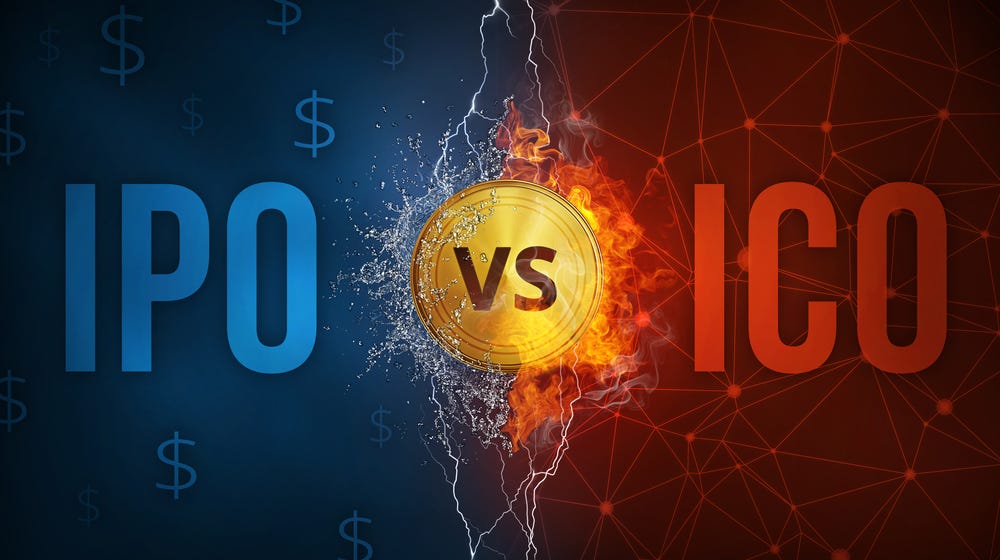
James Carter
ICO vs IPO: What’s the Difference and Which One is Better?

Initial Coin Offerings (ICO) and Initial Public Offerings (IPO) are two popular fundraising methods for companies looking to raise capital. While both ICO and IPO involve issuing securities to the public, the processes, costs, and risks involved in each method differ significantly. In this article, we will take a closer look at ICOs and IPOs, compare them, and discuss which one may be better suited for your business needs.
I. ICO vs IPO
The world of finance and investment has experienced a significant transformation in recent years, thanks to technological advancements and the increasing popularity of blockchain technology. ICOs and IPOs are two popular fundraising methods that have emerged from this transformation. An ICO is a method of crowdfunding using cryptocurrency, while an IPO is a traditional method of fundraising for established businesses.
While ICOs have become increasingly popular in recent years, IPOs have been a standard method of raising capital for businesses for decades. Companies that choose to go public and issue an IPO can raise significant amounts of capital and gain access to a larger pool of investors, which can help them grow and expand their operations.
II. What is an ICO?
An ICO, or Initial Coin Offering, is a fundraising method that involves issuing a new digital currency or token to the public in exchange for funds. ICOs have become increasingly popular in recent years, and many startups and businesses have used them to raise funds for their projects.
A. Definition of an ICO
An ICO is a method of fundraising that involves the creation and distribution of a new digital currency or token. The purpose of an ICO is to raise funds for a new project or venture, with the hope that the value of the new digital currency or token will increase over time, thereby generating returns for investors. Investors usually purchase new digital currency or token using cryptocurrency or fiat currency.
B. Advantages of an ICO
1. Accessibility
ICOs are open to everyone with an internet connection, which means that anyone can invest in an ICO, regardless of their location or financial status.
2. Speed
ICOs can be completed relatively quickly, and companies can raise funds in a matter of days or weeks. This is because the process of launching an ICO is much simpler and faster than that of an IPO.
3. Lower costs
ICOs are much cheaper than IPOs because they do not require the involvement of investment banks or underwriters. Companies can launch an ICO using a simple online platform and raise funds without incurring the high costs associated with an IPO.
4. Transparency
ICOs are transparent, and investors can track the progress of the project and the value of the digital currency or token in real time. This level of transparency is not possible with traditional fundraising methods such as an IPO.
C. Disadvantages of an ICO
1. Lack of regulation
ICOs are largely unregulated, which means that there is a risk of fraud, scams, and other illegal activities. Investors must conduct extensive due diligence to ensure that the project is legitimate and that the team behind the project is credible.
2. Volatility
The value of digital currencies and tokens can be extremely volatile, which means that investors may experience significant losses if the value of the digital currency or token drops.
3. Security risks
ICOs are often targeted by hackers and cybercriminals, who can steal funds and compromise the security of the project.
4. Uncertainty about the future
ICOs are a new and evolving fundraising method, which means that there is a high level of uncertainty about their future. The regulatory environment is still unclear, and the value of digital currencies and tokens is subject to market forces that are difficult to predict.
III. What is an IPO?
An IPO, or Initial Public Offering, is a traditional method of raising capital for established businesses. An IPO involves offering shares of stock to the public for the first time, with the goal of raising funds to finance the company’s growth and expansion.
A. Definition of an IPO
An IPO is a process of offering shares of stock in a company to the public for the first time. The process involves hiring investment banks and underwriters to manage the offering, which includes pricing the shares, marketing the offering to investors, and underwriting the shares.
B. Advantages of an IPO
1. Legitimacy
An IPO provides a level of legitimacy for a company, as it must meet rigorous financial and regulatory requirements to go public. This can enhance the company’s reputation and make it more attractive to investors.
2. Established market
IPOs are listed on established stock exchanges, which means that companies can access a large pool of investors and have their shares traded on an established market.
3. Increased credibility
An IPO can enhance a company’s credibility with customers, suppliers, and partners. Going public can demonstrate the company’s financial strength and commitment to transparency and accountability.
4. Access to a larger pool of investors
An IPO can give a company access to a larger pool of investors, including institutional investors such as pension funds, mutual funds, and hedge funds, who may not have been able to invest in the company previously.
C. Disadvantages of an IPO
1. High costs
IPOs are expensive, and companies must pay significant fees to investment banks and underwriters to manage the offering. These fees can be a significant barrier to entry for some companies.
2. Extensive regulations
Going public requires companies to meet rigorous financial and regulatory requirements, which can be time-consuming and costly. Companies must comply with securities laws and regulations, which can be complex and onerous.
3. Long waiting period
The process of going public can be lengthy and time-consuming, with companies often waiting months or even years to complete the process.
4. Volatility
The value of a company’s shares can be volatile, and investors may experience significant losses if the company’s stock price drops.
WATCH THE VIDEO BELOW FOR MORE CLARIFICATION
IV. Comparison of ICO and IPO
A. Factors to consider when comparing ICO and IPO
1. Purpose of fundraising
The purpose of the fundraising can influence the choice of fundraising method. ICOs are typically used to raise funds for new projects or ventures, while IPOs are used to raise funds for established businesses.
2. Target audience
The target audience can also influence the choice of fundraising method. ICOs are accessible to a wide range of investors, including retail investors, while IPOs are typically targeted at institutional investors.
3. Financial goals
The financial goals of the company can also influence the choice of fundraising method. ICOs can be a more attractive option for companies that want to raise funds quickly and at a lower cost, while IPOs may be a better option for companies that want to raise significant amounts of capital and establish themselves as credible player in the market.
4. Timeline
The timeline for fundraising can also be a factor. ICOs can be completed quickly, while IPOs can take months or even years to complete.
B. Comparison of ICO and IPO
1. Fundraising process
ICOs are typically faster and less expensive than IPOs, as they do not require the involvement of investment banks and underwriters. ICOs are often completed online, with investors purchasing the new digital currency or token using cryptocurrency or fiat currency. IPOs involve a more complex process, with companies needing to hire investment banks and underwriters to manage the offering.
2. Cost
ICOs are typically less expensive than IPOs, as they do not require the involvement of investment banks and underwriters. However, the cost of an ICO can vary depending on the complexity of the project and the marketing and promotion required to attract investors. IPOs are more expensive, as companies must pay significant fees to investment banks and underwriters to manage the offering.
3. Regulatory requirements
ICOs are not subject to the same regulatory requirements as IPOs. While there is some regulatory oversight of ICOs, the regulatory landscape is still evolving and can be unclear. IPOs are subject to rigorous financial and regulatory requirements, including compliance with securities laws and regulations.
4. Investor pool
ICOs are accessible to a wide range of investors, including retail investors, who may not have been able to invest in a traditional IPO. However, this also means that ICO investors may have less financial expertise and be more susceptible to fraud and scams. IPOs are typically targeted at institutional investors, who have more financial expertise and can conduct more thorough due diligence.
5. Transparency
ICOs are often criticized for their lack of transparency, as many projects do not provide detailed information about their business model, team, or financial projections. IPOs are subject to extensive disclosure requirements, which can provide investors with more detailed information about the company and its financials.
6. Liquidity
ICOs can provide investors with more liquidity, as tokens can be traded on cryptocurrency exchanges. However, the value of the token can be volatile, and there may not be a deep market for the token. IPOs provide investors with more liquidity, as shares can be traded on established stock exchanges with a deep pool of buyers and sellers.
Summary
ICOs and IPOs are two different methods of raising capital, each with its advantages and risks. ICOs are a newer method of fundraising that has gained popularity in recent years, while IPOs have been a well-established method of fundraising for decades. Companies should carefully consider their financial goals, target audience, and timeline when deciding between an ICO and an IPO. While ICOs can be a faster and less expensive option for raising capital, IPOs can provide a level of legitimacy and access to a larger pool of institutional investors. Ultimately, the choice between an ICO and an IPO will depend on the specific needs and goals of each individual company.
Latest
Business
21 Feb 2026
Business
13 Feb 2026
Business
07 Feb 2026
Business
06 Feb 2026
Business
05 Feb 2026
Business
03 Feb 2026












